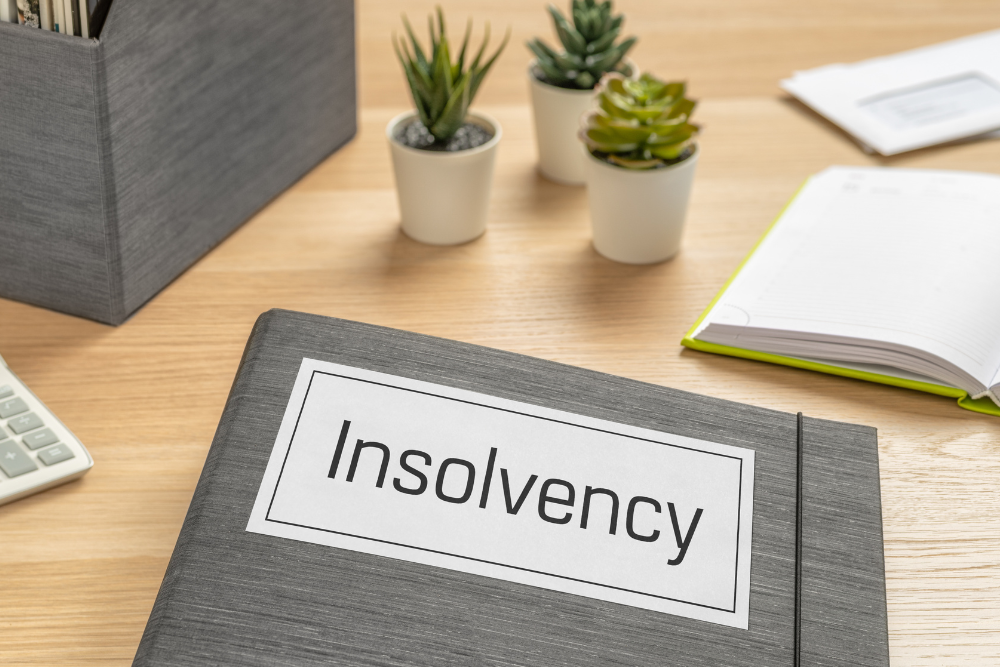What Does Insolvency Practitioner Mean?
Table of ContentsThe Buzz on Insolvency PractitionerThe Main Principles Of Insolvency Practitioner More About Insolvency PractitionerEverything about Insolvency PractitionerInsolvency Practitioner - The Facts
Whether or not you require to use a bankruptcy expert (IP) to liquidate your company relies on various variables. While engaging an insolvency professional for all forms of liquidation is not a lawful need, doing so can typically enhance the procedure and guarantee conformity with lawful demands. Liquidating a business is a critical choice that features substantial repercussions.
It is a treatment made use of when a firm does not have any lenders, or every one of their lenders can be settled completely with legal passion. Recognizing the various kinds of bankruptcy procedures can aid you determine the most effective strategy for your firm's liquidation or other official bankruptcy procedures itself.
This is compulsory in order to stick to legal requirements - Insolvency Practitioner. This is since IPs have the necessary certifications and experience to ensure that the liquidation procedure is conducted in accordance with all suitable laws and guidelines. By engaging a licensed insolvency practitioner, you can have assurance knowing that your company's liquidation process will be handled professionally and in conformity with the appropriate legal demands
The Facts About Insolvency Practitioner Uncovered
The bankruptcy professional is designated as a liquidator and is in charge of managing the company and liquidator's financial debts impressive responsibilities and properties. This procedure involves marketing off the business's assets and dispersing the proceeds to lenders. Upon completion of the procedure, the firm is gotten rid of from the register at Companies Home.
Falling short to do so can result in individual liability for the company or supervisor for the lender's debts. Volunteer liquidation, that includes Financial institutions' Voluntary Liquidation (CVL) and Participants' Voluntary Liquidation (MVL), is started by the company's directors and shareholders when they can no more pay their financial obligations. In a CVL, the bankruptcy practitioner is designated as the liquidator, responsible for handling company financial debts and all firm assets.

The Ultimate Guide To Insolvency Practitioner
By examining the proficiency and experience of potential bankruptcy specialists, you can make certain that you select a specialist who has the needed credentials to handle your business's liquidation process efficiently. While bankruptcy practitioner-led liquidation is typically one of the most suitable strategy for firms facing bankruptcy, there are alternative approaches to think about, such as striking off and partial liquidation.
It's important to assess all offered options before choosing the next finest solution or training course of activity for your company. Striking off companies' registers is a much more straightforward and economical way to shut inactive or tiny business without any financial obligations or properties. To strike off a firm, its name is eliminated from the Companies Residence register by this link sending form DS01.
Before opting for striking off, it's crucial to weigh the benefits and downsides of this technique and take into consideration whether it's the appropriate choice for your organization. Partial liquidation is another option to insolvency practitioner-led liquidation, wherein a company liquidates specific properties and obligations while remaining to run with the remaining possessions and responsibilities.
A Bankruptcy Specialist will have the ability to recommend you of the very best strategy to take and ensure that whatever runs smoothly. It is not feasible to liquidate a firm without a liquidator. Designating an authorized insolvency professional is essential for the process of volunteer liquidation to start.
The Ultimate Guide To Insolvency Practitioner
It is possible to close and liquidate your firm without making use of a liquidator, provided your business is solvent and you meet the qualification requirements to dissolve or liquidate it. If your company is insolvent, you may be needed to use a liquidator and begin official bankruptcy treatments. Here are some various other interesting posts concerning business liquidation in the UK:.
Remaining in a setting where you're not able site here to pay your company's lenders is exceptionally demanding. In an effort to prevent raising the level of debt, many business try to bargain straight with their financial institutions and consent to an informal plan. If the financial obligation is quite small and owed to one lender, and the lender is being participating, getting in into an casual debt plan is most likely the most effective option, instead of looking the internet for 'an insolvency professional near me'.
On the various other hand, if there are numerous lenders and the level of financial debt is large, financial institutions may not be so prepared or cooperative. In order to avoid liquidation or bankruptcy, it is much better to employ a bankruptcy professional to prepare formal proposals and work out with lenders on your behalf.
More About Insolvency Practitioner
Whilst it is a way to take care of debt, there are considerable dangers involved with this sort of debt arrangement - Insolvency Practitioner. If a lender wants to become part of a casual setup (IA) where the debtor has actually consented to make normal, if reduced, settlements to repay the debt, it's crucial to stick to the agreement

Consequently, the lender is within their legal rights to back out of the agreement and petition the courts for your firm to be sold off any time. A formal Going Here plan that has been recommended by a bankruptcy professional in your place, and concurred by a lender, provides a much safer choice.